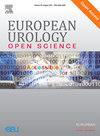The Importance of Antimicrobial Strategies Associated with Clinical Cure and Increased Microbiological Eradication in Patients with Complicated Urinary Tract Infections and High Risk of Relapse
IF 3.2
3区 医学
Q1 UROLOGY & NEPHROLOGY
引用次数: 0
Abstract
Background and objective
Complicated urinary tract infections (cUTIs) are serious, potentially life-threatening infections that occur in patients with an increased disease progression risk. Antimicrobial resistance represents an important health issue worldwide, contributing to relapses, which can generate further resistances. It is necessary to clarify the role of microbiological eradication as an additional objective in the management of cUTIs. Some publications suggest that relapses relate to insufficient bacterial suppression in the urinary tract. This study focuses on generating a consensus on how patients with cUTIs would benefit from effective antimicrobial agents associated with higher rates of bacterial eradication.
Methods
The nominal group technique was followed: systematic literature review, development of a questionnaire, expert panel meeting to discuss results, individual review of draft consensus document, and expert panel meeting to discuss final views and finalise the consensus document.
Key findings and limitations
Experts identified risk factors for cUTIs (patients with a higher risk of relapse, physiological obstruction of urinary tract, immune suppression, and previous relapse), and patients who would benefit most from a therapeutic strategy combining clinical cure and aim for microbiological eradication. While experts agreed that the scientific evidence discourages repetition of urine cultures after treatment, they proposed recommendations to prioritise antibiotics with higher evidence of microbiological eradication and close follow-up in patients with a higher risk of relapse, considering any symptoms appearing following clinical cure of the cUTI.
Conclusions and clinical implications
Selection of active antimicrobial agents associated with increased microbiological eradication should be prioritised in patients with cUTIs and a high risk of relapse.
Patient summary
Complicated urinary tract infections (cUTIs) occur in patients with an increased risk of disease progression or are caused by multidrug-resistant uropathogens. Antimicrobial resistance is of concern as it can result in relapses. Antimicrobial therapeutic strategies associated with increased microbiological eradication in cUTI patients with a high risk of relapse are crucial to prevent relapses and development of antibiotic resistance.
在复发率高的复杂尿路感染患者中,与临床治愈和微生物根除相关的抗菌策略的重要性
背景和目的:复杂性尿路感染(cUTIs)是一种严重的、可能危及生命的感染,发生在疾病进展风险增加的患者中。抗菌素耐药性是世界范围内的一个重要健康问题,导致疾病复发,进而产生进一步的耐药性。有必要明确微生物根除作为cUTIs管理的附加目标的作用。一些出版物认为复发与尿路细菌抑制不足有关。这项研究的重点是就cUTIs患者如何从与较高细菌根除率相关的有效抗菌药物中获益达成共识。方法:采用名义小组技术:系统的文献综述,制定问卷,专家小组会议讨论结果,个别审查共识文件草案,专家小组会议讨论最终意见并最终确定共识文件。主要发现和局限性:专家确定了cUTIs的危险因素(复发风险较高、尿路生理性阻塞、免疫抑制和既往复发的患者),以及从临床治愈和微生物根除相结合的治疗策略中获益最多的患者。虽然专家们一致认为,科学证据不鼓励治疗后重复尿液培养,但他们建议优先使用微生物根除证据较高的抗生素,并对复发风险较高的患者进行密切随访,同时考虑到cUTI临床治愈后出现的任何症状。结论和临床意义:对于cUTIs和复发风险高的患者,应优先选择与微生物根除相关的活性抗菌药物。患者总结:复杂性尿路感染(cUTIs)发生在疾病进展风险增加或由多药耐药尿路病原体引起的患者中。抗菌素耐药性令人担忧,因为它可能导致复发。在复发风险高的cUTI患者中,与增加微生物根除相关的抗菌治疗策略对于预防复发和抗生素耐药性的发展至关重要。
本文章由计算机程序翻译,如有差异,请以英文原文为准。
求助全文
约1分钟内获得全文
求助全文
来源期刊

European Urology Open Science
UROLOGY & NEPHROLOGY-
CiteScore
3.40
自引率
4.00%
发文量
1183
审稿时长
49 days
 求助内容:
求助内容: 应助结果提醒方式:
应助结果提醒方式:


